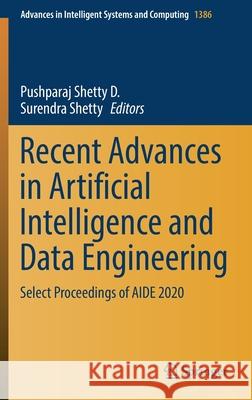Recent Advances in Artificial Intelligence and Data Engineering: Select Proceedings of Aide 2020 » książka
topmenu
Recent Advances in Artificial Intelligence and Data Engineering: Select Proceedings of Aide 2020
ISBN-13: 9789811633416 / Angielski / Twarda / 2021 / 430 str.
Recent Advances in Artificial Intelligence and Data Engineering: Select Proceedings of Aide 2020
ISBN-13: 9789811633416 / Angielski / Twarda / 2021 / 430 str.
cena 1328,44
(netto: 1265,18 VAT: 5%)
Najniższa cena z 30 dni: 1272,31
(netto: 1265,18 VAT: 5%)
Najniższa cena z 30 dni: 1272,31
Termin realizacji zamówienia:
ok. 16-18 dni roboczych.
ok. 16-18 dni roboczych.
Darmowa dostawa!
Kategorie:
Kategorie BISAC:
Wydawca:
Springer
Seria wydawnicza:
Język:
Angielski
ISBN-13:
9789811633416
Rok wydania:
2021
Wydanie:
2022
Numer serii:
000453356
Ilość stron:
430
Waga:
0.83 kg
Wymiary:
23.39 x 15.6 x 2.69
Oprawa:
Twarda
Wolumenów:
01
Dodatkowe informacje:
Wydanie ilustrowane











